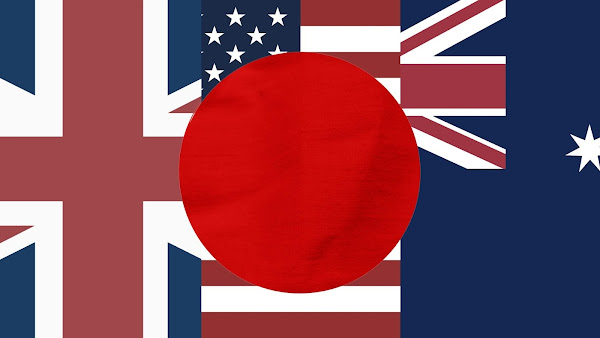Despite unprecedented confrontation with the West since the invasion of Ukraine, Russia keeps close relations with African nations, and nearly half of them have abstained from denouncing and imposing sanctions on the Russian aggression at UN General Assemblies. Among them, South Africa is a critical focus because ruling ANC makes a fatal and completely self-defeating mistake, as they maintain friendly relationship with Russia, even though this country is the worst racist regime in the world under the Putin administration.
The ANC is wrong and self-defeating to pursue pro-Russian diplomacy, ideologically. We all know that this party had fought against apartheid for decades until the end of the Cold War. Their fellow blacks in Europe and America showed strong solidarity with their anti-racism struggle. However, as if they had forgotten their long history of resistance, current ANC is befriending racist Russia after the fall of the Soviet Union. This is an innocent betrayal to those who supported their effort for multi-racial democracy, because Russian President Vladimir Putin is the most notorious sponsor for the far right in the West to weaken liberal democracy, which led to Russian election interferences for Brexit and the Trump presidency. Even after the worldwide shock of the Russian invasion of Ukraine, some of those rightwing populists still resonate with Putin in order to propagate their aversion to socio-cultural diversity associated with globalization and devotion to White Christian nationalism. The party that advocates racial egalitarianism should never forget murky ties between Russia and Western racists.
Deplorably, the ANC betrays them unconciously.
Those pro-Russian right-wingers earn a horrible reputation in the United States. MAGA Republicans claim that America disengage from the conflict with Russia over Ukraine in the name of a “small government” ideal. Such right-wingers in the House are Representatives Marjorie Taylor Greene (MTG), Matt Gaetz, Paul Gosar, Maddison Cawthorn, etc. In addition, former Trump administration officials, including ex-National Security Advisor Michael Flynn, ex-White House Advisor Peter Navarro, and ex-Senior Councilor to the President Steve Bannon justify Putin’s aggression of Ukraine, as if they spoke on behalf of the Kremlin. Some of those extremists ridiculously regard Volodymyr Zelensky as “a globalist puppet for Soros and the Clintons.” Above all, Donald Trump himself praised Putin a genius when he invaded Ukraine (“Meet the pro-Putin Republicans and conservatives”; Republican Accountability Project). There is nothing Reaganite in their national security visions.
Also in Europe, some far right politicians still show pro-Putin posture, even though their countries face more direct threat of Russia than their fellows in America. After the Italian general election this September, newly-elected Prime Minister Giorgia Meloni from neo-fascist Brothers of Italy have overturned her position regarding Russia, but her right-wing colleagues in the cabinet such as Matteo Salvini and Silvio Berlusconi still remain pro-Putin (“Putin’s Friends? The Complex Balance Inside Italy’s Far-Right Government Coalition”; IFRI; November 28, 2022). Russia was also behind the German far right coup attempt led by Heinrich XIII this December. One of the suspects was approaching Russia on behalf of Heinrich (“Germany arrests 25 accused of plotting coup”; BBC News; 7 December, 2022). Pro-Russian demagogues and arsonists are found in the right wing media as well. Tucker Carlson of FOX News tells his TV audiences to take sides with Russia over Ukraine. Ex-UKIP leader Nigel Farage of GB News speaks more discreetly to support Russia indirectly by propagating skepticism about Zelensky’s competence to govern the nation.
Do we really, wholly trust Volodymyr Zelenskyy?
— Nigel Farage (@Nigel_Farage) November 16, 2022
pic.twitter.com/5kKWWugcEU
The list of those Western far right on both sides of the Atlantic is filled with creepy and scary people. Why should a party of black empowerment associate with the axis of “TrumPutin” racists? Remember, Russian Foreign Minister Sergey Lavrov expressed wholehearted sympathy to white nationalists in the United States this April, as he blamed “anti-white aggressions” (“Russia Warns of Anti-White 'Aggression' in U.S.”; Moscow Times; April 1, 2021). Actually, it is not just racism, anti-feminism, and anti-LGBT values that the Kremlin and the Western far right is in agreement. Putin’s Russia and Western racists share much more deeply fundamental values, which is called nationalist democracy by Israeli rightist historian Yoram Hazony, and sovereign democracy by former Russian Presidential Advisor Vladislav Surkov. That is an ideology totally in denial of the universal value of liberal democracy, and strongly nativist and anti-modernist. Those “TrumPutin” racists detest enlightenment and globalism, both of which are strongly endorsed by the Western establishment.
Furthermore, Putin’s aggression of Ukraine has also revealed domestic racism his country. The casualty rate of soldiers of ethnic minorities such as Mongolian Buryats and Caucasus Muslim Daghestanis is much higher than that of Russians (“Young, poor and from minorities: the Russian troops killed in Ukraine”; France 24; 17 May, 2022). More critically, I suspect that Putin’s interpretation and implementation of the Russky Mir notion reflects his racist vision of the world. In the well-known article “On Historical Unity of Russians and Ukrainians”, he expresses deep-rooted grudge against Western superiority in the post-Cold War international politics and sheer disrespect to Ukrainian culture and history to deny their independence and sovereignty. With such contemptuous attitude, there is no wonder why the Russian troops have committed so many crimes in Ukraine, including rape, burgling, torture, murder, and any other kind of violence. Appallingly, Putin awarded a prize to those shameless rapists of Bucha (“Putin honors brigade accused of war crimes in Bucha”; Washington Post; April 19, 2022).
Nevertheless, there is no doubt that the ANC owed significantly to Soviet help in the past in their struggle against apartheid. As in the United States, racial equality activists had almost no choice but leaning to the left. Their alignment with the communist super power was a natural option in those days, but that was too provocative for both Ronald Reagan and Margaret Thatcher, in view of the Soviet-Cuban presence in Angola and Mozambique. Fortunately, the party leader Nelson Mandela proved that he could be in partnership with the West and white South Africans to develop multi-racial democracy, and won support from the global community. After all, the Soviet regime had collapsed, but the ANC leaders still seem to feel emotional and nostalgic ties with Russia.
It seems that Africans share the same kind of sentimentalism with Japanese. Typically speaking, late Prime Minister Shinzo Abe pursued his father Shintaro’s unfinished job to settle the peace treaty with Soviet President Mikhail Gorbachev by having the Norther Territories returned. Abe sought to develop economic cooperation with post-Communist Russia. However, his wishful dream ended in failure, because he dismissed ruthless nature of Putin’s rule of power. Putin is not Gorbachev. From the current Kremlin’s point of view, Japan is just a subordinate ally of the United States, and Russia does not have to return the territory in consideration of economic cooperation. The problem is not just reciprocity. Ideologically, the old Soviet Union and current Russia are completely at odds, as the former sponsored communists worldwide while the latter sponsors far right racists in the West. Therefore, it does not make sense that the ANC still regards Putin’s Russia as their friend. Like Abe, they see Russia very illusionally. Think again. America and Israel were on very friendly terms with Iran ruled by modernist Shah, but both countries shall never treat current Shia theocracy of this country as such. A different regime makes a totally different country.
Rather than befriending Russia, the ANC is in a good position to denounce Putin’s nuclear blackmail racism. His Russky Mir essay shows an implicit sense of Russian superiority to Ukrainians, and it is such disdainful thinking that makes him so cruel to the enemy whether Chechnyans, Syrians, or Ukrainians. Without Western deterrence, he would not mind mass murder against any enemies who deny his Russky Mir values. To the contrary, South Africa is the only sovereign state that has abolished nuclear weapons by itself, while autocracies in the Global South such as Iran and North Korea commit nuclear proliferation. Remember, both of them help Putin’s savage invasion of Ukraine. Why should a party of multi-racial democracy make friends with the axis of racists, anti-globalists, and anti-enlightenment, which is primarily constituted of Putin’s Russia and Western far right?
Deplorably, most of the media do not criticize tremendous contradictions associated with the ANC’s unconscious betrayal to racial egalitarians around the world. It is no use to report their historical relations with the Soviet Russia so “sympathetically”. Putin’s Russia no longer upholds the value, “Workers of the world, unite!” In the name of traditionalism, his Russia provokes racist unrest in the West.
Among African nations, South Africa draws my attention from the following reasons. This country is located in a position to link the Atlantic and the Indo-Pacific area, which is quite important in the 21st century geostrategy. Also, the prospect of multi-racial democracy in this country is a global attention. In addition, this country belongs to the Anglo-Saxon politico-cultural sphere, since it was founded as a white dominion of the British Empire historically. Therefore, South Africa stimulates my interest, as my main focuses are the United States and Britain. And therefore, I would like to call an attention from the media and academics around the world to review fatal contradictions of pro-Russian diplomacy of the ANC more critically.




